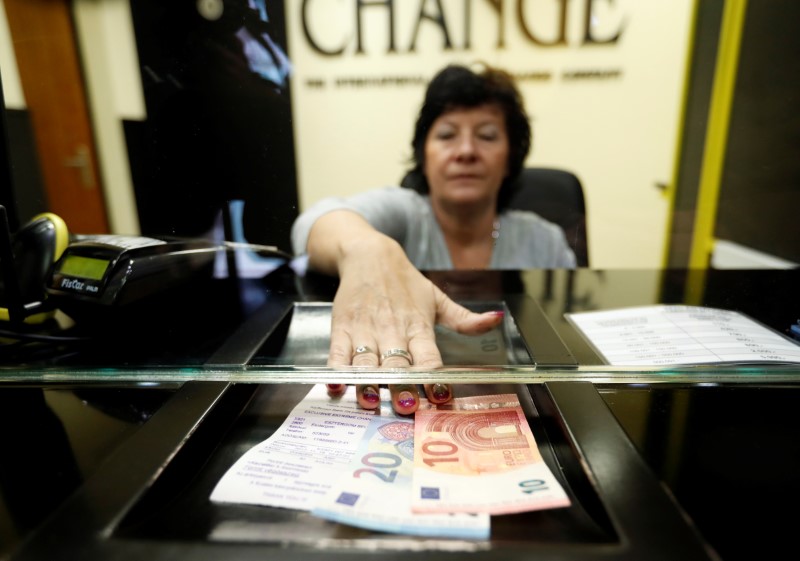FRANKFURT (Reuters) - Lending to euro zone households and companies accelerated in March while a broader indicator of money circulating in the currency bloc, which often foreshadows future activity, slowed sharply, data from the European Central Bank showed on Monday.
Lending to non-financial corporations picked up to 3.3 percent in March from an upwardly revised 3.2 percent a month earlier while household lending growth increase to 3.0 percent from 2.9 percent, the ECB said in a regular monthly statement.
Buying around 2.5 trillion euro worth of debt in the past three years, the ECB has labored away to depress borrowing costs and kick start lending, all in the hope of rekindling growth and inflation.
While its efforts have mostly paid off, growth has appeared to soften in recent months, raising concerns that the ECB could struggle to remove stimulus and may need to provide support for the economy longer than markets now expect.
Lending also remains well below its pre-crisis mark, indicating that the bank sector is still far from healthy. Weighed down by bad debt often a decades old, many lenders remain reluctant to lend to the real economy while they struggle to repair their balance sheets.
The annual growth rate of the M3 measure of money supply, seen by some as a precursor of economic activity, slowed sharply to 3.7 percent in March from 4.2 percent a month earlier, trailing expectations for 4.1 percent.

To read more about this data, please click: https://www.ecb.europa.eu/press/pr/stats/md/html/index.en.html